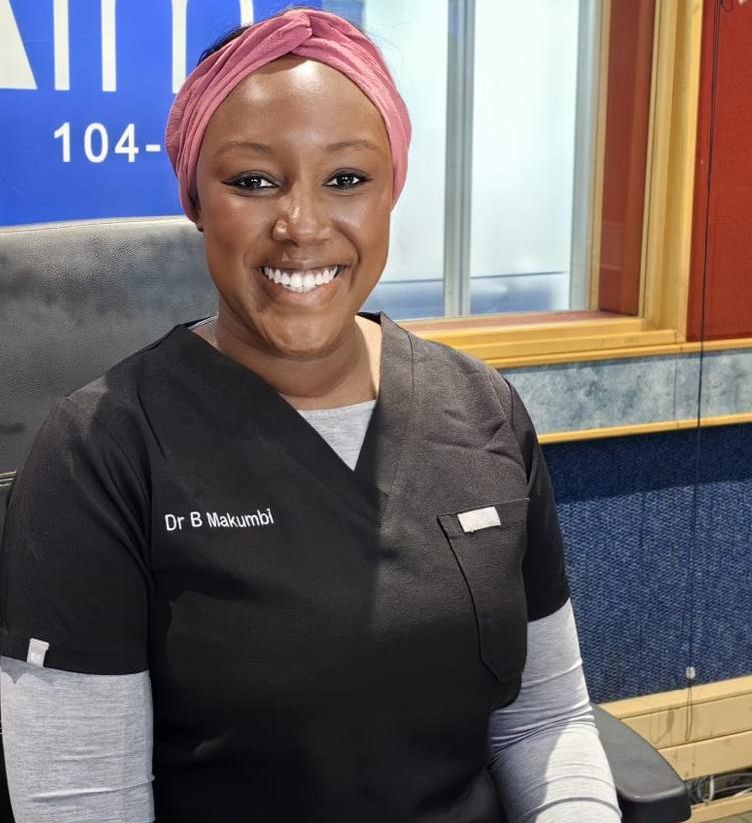Understanding the toll acid reflux can take on your health
How lifestyle choices can help manage GORD
What happens when the hydrochloric acid produced in the stomach escapes upwards into a person’s oesophagus? A bitter taste in the mouth, heartburn, sore throat, hoarse voice or unexplained chronic cough can be tell-tale signs of the acidic burn of reflux or the longer-term condition gastroesophageal reflux disease (GORD).
“The troublesome symptoms people with GORD experience can have significant social, workplace, and economic impacts, especially when the condition is persistent and chronic. It’s also one of the most common conditions primary healthcare physicians and gastroenterologists are consulted for,” says Dr Barbara Makumbi, a gastroenterologist practising at Netcare Sunward Park Hospital.
“Typically, when we eat, food passes down the oesophagus and enters the stomach through the lower sphincter, which functions as a one-way valve to seal the stomach and prevent digestive contents from flowing back into the oesophagus. However, in some cases – especially after eating certain foods, or when lying down soon after a meal – the pressure in the stomach can increase, causing the acidic liquid to escape from the stomach upwards, irritating the more sensitive lining of the oesophagus and leading to discomfort,” she explains.

Gastroenterologist, Dr Barbara Makumbi
Dr Makumbi points out that the symptoms of reflux can be sporadic and mild for some people, but may develop into a progressively worse chronic condition, known as GORD, if not addressed. “Over time, this unconscious regurgitation causes inflammation that can make eating or its after-effects quite painful, disrupt the person’s sleep, and potentially lead to other troubling complications,” she cautions.
Recognising GORD
Dr Makumbi says there are various possible symptoms associated with reflux and gastroesophageal reflux disease (GORD).
Typical symptoms
- Heartburn is a burning sensation usually felt in the centre of the chest that often occurs after meals and worsens when lying down.
- Regurgitation – When the digestive fluid comes up the oesophagus, this can result in a bitter taste in the mouth.
- Belching (burping)
- Nausea or vomiting
- Experiencing a sensation of fullness sooner when eating.
Dr Makumbi says that in more severe cases, complications involving damage to the oesophagus and nearby anatomy can result in atypical symptoms, including the following:
- Inflammation of the lining of the oesophagus leading to difficulty swallowing or painful swallowing and bleeding.
- Laryngitis or pharyngitis: Throat inflammation resulting in a sore throat or hoarse voice.
- Small amounts of the acidic gastric fluid can enter the airways of the lung, resulting in chronic cough, new or worsening asthma and scarring of the lung tissue called fibrosis.
- Dental complications can occur when the teeth are exposed to regurgitated stomach acid, including erosion of tooth enamel, tooth decay and bad breath.
Dr Makumbi encourages anyone experiencing persistent symptoms of reflux or GORD to consult a healthcare practitioner for a diagnosis and appropriate treatment.
GORD risk factors may include:
- Structural changes to the sphincter muscle, such as a hiatus hernia, where the stomach bulges into the chest above the diaphragm
- Abdominal fat, weight gain, or being overweight or obese
- Pregnancy
- Diet and habits that can weaken the oesophageal sphincter, including fatty foods, caffeine, smoking, alcohol, and carbonated drinks
- Certain medications’ side effects
- Having large meals or eating too close to bedtime
“If GORD is not identified and managed, either through lifestyle modification alone or in combination with medication, the person may be at risk of developing oesophageal strictures. This is where, over time, the lining of the oesophagus is repeatedly irritated and inflamed and develops scar tissue, which can narrow the passage that conveys food from our mouths to our stomachs, making it difficult to swallow.
“Another important reason to get reflux addressed is Barrett’s Oesophagus, which is a precancerous lesion of the lower part of the oesophagus that is associated with repeated acid exposure. As the disease progresses, Barrett’s can develop into oesophageal cancer.
“Be sure to inform your doctor if you have a family history of oesophageal or stomach cancer, as this can also suggest a need for heightened vigilance,” she advises.
Some patients may require further investigation with a gastroscopy, where a gastroenterologist or surgeon uses a long thin tube with a camera to check the mouth, oesophagus, stomach and duodenum. Other times, a barium swallow in a radiology department may be requested, where the patient drinks a contrast fluid to reveal the swallowing mechanism and the anatomy of the oesophagus and stomach.
“In severe cases, reflux monitoring and pH studies can be done, whereby a catheter is inserted via the nostrils into the oesophagus to monitor the amount of reflux and the acidity of the digestive contents to confirm and classify diagnosis of GORD,” Dr Makumbi explains.
“Lifestyle modification is important for management of GORD, and a few simple steps can often help bring significant relief for mild to moderate cases,” she says.
Tips for coping with GORD
- Elevate your head and upper body with a few extra pillows when you sleep. This allows gravity to assist in reducing reflux.
- Shedding excess kilos can help reduce upward abdominal and gastric pressure that contributes to reflux.
- Try sleeping on your left side.
- Eat dinner three hours before bedtime.
- Avoid lying down after meals.
- Avoid alcohol and smoking.
- Reduce the size of meals.
- Consult a dietician and avoid fat, citrus, spicy food, tomato-based products, chocolate, peppermint, and caffeinated or fizzy drinks.
- Keep a food diary to help identify your individual triggers.
“Most cases of GORD can be effectively managed with these principles, and over-the-counter short-term relief or prescription medications as needed. Surgical options may be considered for certain patients whose conditions are severe. However, these procedures are not undertaken lightly. Nowadays, such procedures are usually performed laparoscopically, or with a ‘pinhole’ surgery approach,” Dr Makumbi concludes.













